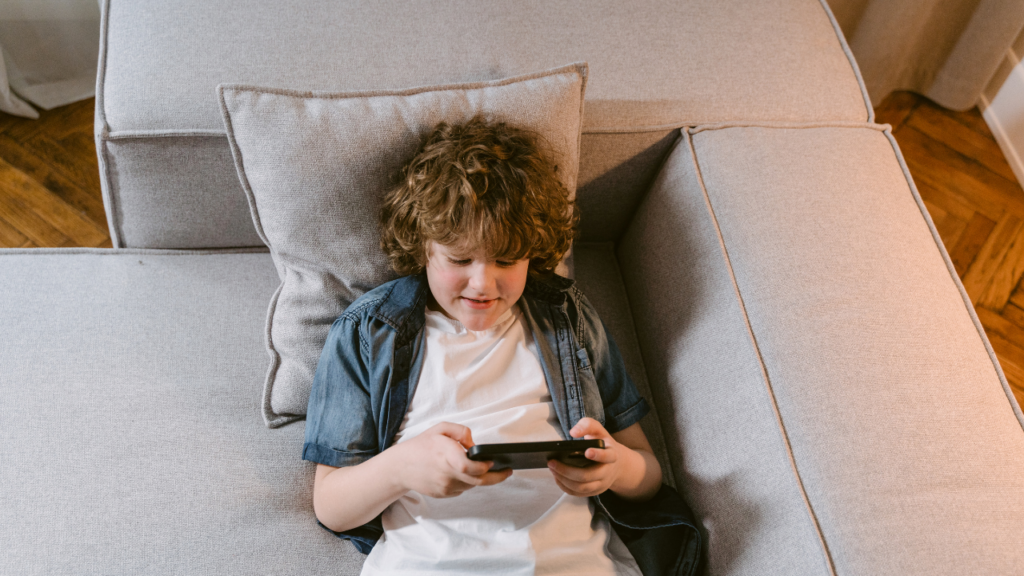As the summer season approaches, parents face a familiar challenge: how to encourage their children to step away from screens and engage in meaningful activities. While it may seem that children can pay attention to screens for hours without any apparent issues, it is crucial to recognize the long-term consequences of excessive screen time on their well-being and development. So let’s take a look at the effects of excessive screen time on attention span and cognitive abilities, discuss the challenges of implementing a structured screen time plan, and provide tips to overcome them.
Understanding the Effects of Excessive Screen Time
One common misconception among parents is the belief that because their children can pay attention to screens for hours on end, excessive screen time must not be a problem. However, it is crucial to recognize that attention to screens is fundamentally different from sustained attention required for real-world tasks and activities.
Screen-based content, designed with flashy visuals, rapid changes, and constant stimulation, is specifically engineered to capture and retain a child’s attention. The continuous stream of novel and exciting information triggers the release of dopamine in the brain, creating a powerful reward system that keeps children engaged. This addictive quality of screen-based content can make it difficult for children to tear themselves away from screens willingly.

The Dangers of Limited Attention Span
While it may seem impressive that children can remain fixated on screens for extended periods, this prolonged exposure can have adverse effects on their attention span and cognitive abilities. The constant bombardment of stimuli and rapid shifts in focus during screen time hinder the development of sustained attention and the ability to concentrate on a single task for a significant period.
In real-world scenarios, such as school or engaging in hobbies, children must possess the capacity to maintain their attention and engage with tasks that may not provide instant gratification. Excessive screen time undermines the development of these essential skills, leading to difficulties in focusing, retaining information, and completing tasks that require sustained mental effort.
The Challenges of Implementing a Structured Screen Time Plan
Implementing a structured screen time plan can pose challenges, particularly during the initial stages. Children who are accustomed to unlimited screen time may resist, push back, and even experience emotional meltdowns. This temporary response stems from the withdrawal symptoms associated with reducing screen time. However, with patience, consistency, and support from parents, these challenges can be overcome.
Tips for Successfully Implementing a Structured Screen Time Plan
- Communicate: Discuss with your child the reasons behind limiting screen time and the benefits of engaging in alternative activities. Help them understand that this change is for their overall well-being and growth.
- Set Clear Expectations: Establish clear rules and expectations regarding screen time. Define specific time limits and create a schedule that incorporates various activities such as outdoor play, reading, creative projects, and family time.
- Provide Engaging Alternatives: Offer a range of stimulating activities that capture your child’s interests and encourage their curiosity. Outdoor adventures, arts and crafts, sports, board games, and family outings can provide exciting alternatives to screen time.
- Lead by Example: Act as a role model by reducing your own screen time and actively participating in alternative activities. Children are more likely to embrace change when they see their parents leading by example.
- Encourage Social Interaction: Plan opportunities for your child to engage with peers and participate in social activities. Encourage them to join summer camps, sports teams, or community programs where they can interact with others and build social skills.
- Create Tech-Free Zones: Designate certain areas in your home as tech-free zones, such as the dining table or bedrooms. These spaces can serve as screen-free sanctuaries that promote family bonding, conversation, and relaxation.
- Establish Screen-Free Times: Set specific periods during the day where screens are completely off-limits, such as during meals, before bedtime, or in the early morning. This allows for uninterrupted quality time and promotes better sleep habits.
- Collaborate on Activity Choices: Involve your child in decision-making when it comes to choosing alternative activities. Let them have a say in selecting outings, games, or hobbies, which increases their sense of ownership and enthusiasm.
- Monitor and Encourage Balance: Use parental control tools and monitoring apps to keep track of your child’s screen time and ensure they are adhering to the agreed-upon limits. Encourage them to self-regulate and make responsible choices regarding their screen use.
- Be Flexible and Patient: Recognize that the transition to a structured screen time plan may present challenges and resistance from your child. It’s normal for children to initially resist change and push back against new rules. However, remember that these reactions are temporary, and by remaining patient and consistent, you can help your child adjust to the new routine.

Encourage your child to embrace alternative activities and provide support during this transition period. While there may be occasional setbacks, remember that perseverance pays off. By sticking with the plan, you are setting the foundation for healthier screen habits and fostering your child’s overall well-being.
Over time, as your child becomes accustomed to the structured screen time plan, you will notice positive changes in their attention span, cognitive abilities, and engagement in real-world activities. Stay committed to the journey and trust that the long-term benefits far outweigh any initial resistance or challenges you may encounter.
Embrace the wonders of the real world this summer and witness your child flourish beyond the confines of the screen.
Links to Books & Activities on this Topic:
Unplugged Ninja
Unplugged Ninja has a hard time getting off electronics until they discover the three Rs: Reset, Reconnect, Relax. Find out what happens in this comedic book about finding balance with a digital detox.
Screen Time is Not Forever
As important as screens are in our lives, we all need to unplug, especially children. This reassuring picture book offers children and families a starting point for limiting screen time and making the most of the time you have with your screens and without.
150+ Screen-Free Activities
Rediscover the spirit of imaginative play! These fun activities help develop your child’s creativity and skills–all without a screen in sight.
Screen-Free Family Activities
365 activities for play and adventure without screens: having fun with your family and without technology is possible!

